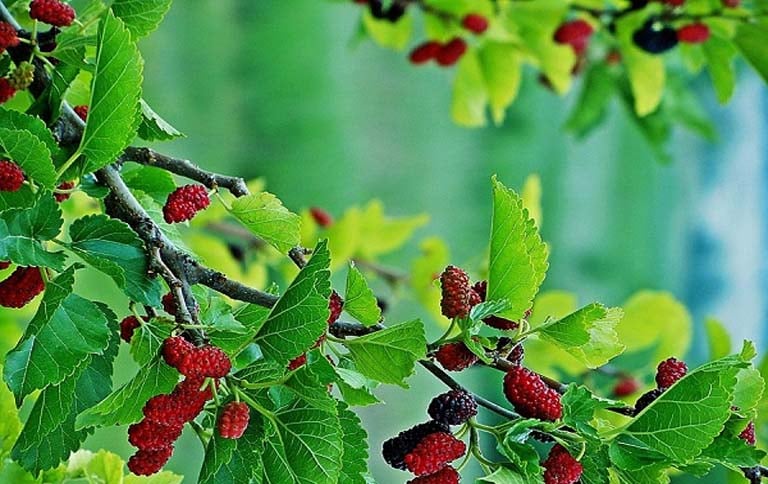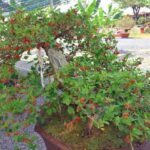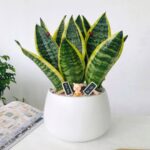Mulberry Tree
The mulberry tree is considered one of the most inauspicious trees to plant in front of a house, according to ancient Vietnamese beliefs. The name of the tree in Vietnamese, “dâu”, shares the same pronunciation as the word for “mourning” and is thus believed to bring bad luck and misfortune. The tree is also believed to carry a strong negative energy that can be detrimental to the health and well-being of the inhabitants, causing weakness and frequent illnesses.

The Mulberry Tree – A Tree of Bad Omen
Chinese Parasol Tree
The Chinese parasol tree is another type of tree that is not recommended to be planted near a house. This is mainly due to its large size and height, which can block out sunlight and create a dark and damp environment, which is considered unfavorable in feng shui. Sunlight is essential for the well-being and growth of all living beings, and its absence can lead to depression and gloom.
Additionally, with a lifespan of hundreds of years, some believe that the Chinese parasol tree attracts spirits. Its dense and towering presence is not suitable for a residential setting.
Banyan Tree
The banyan tree, a sacred tree often found near temples and shrines, is not meant to be planted near a house. Doing so is believed to disrupt the balance of yin and yang, bringing danger to the family. The extensive root system of the banyan tree can also cause structural damage to the house.

Avoid Planting Banyan Trees Near Your Home
Cactus and Thorny Plants
Cacti and other thorny plants are believed to dissipate positive energy, preventing it from entering the house. This can lead to a lack of harmony and prosperity in the home, affecting health, work, and finances.
Weeping Willow
The weeping willow, with its graceful branches and drooping leaves, evokes a sense of sadness and farewell. It is often associated with emotions of separation and gloom and is therefore not recommended to be planted near a house. Willows thrive in watery environments and bring a chill, increasing dampness and coldness in the surrounding area.
Additionally, the weeping willow disrupts the balance of yin and yang, attracting negative energy and creating a melancholy atmosphere in front of the house. For these reasons, it is considered unlucky to plant willows near the home.
The Secret Garden: Unveiling the Mystery of the Five ‘Unconventional’ Plants.
Introducing the world of greenery and its profound impact on our homes and wealth. The strategic placement of plants around a house holds significant power over the flow of positive energy and abundance. The well-heeled often opt to plant particular trees and shrubs at the back of their homes, a strategic move that sets them apart from the average homeowner. This deliberate choice is more than just an aesthetic preference; it’s a calculated decision rooted in a deeper understanding of the natural world and its influence on our lives.
The Ultimate Guide to Office Air Purification: 6 Houseplants to Combat Computer Radiation
To mitigate the heat radiation emitted by computers, consider incorporating certain types of indoor plants into your workspace décor. These plants not only enhance the aesthetic appeal of your desk but also serve as a natural barrier against harmful rays emitted by technological devices, particularly computers and phones.





































